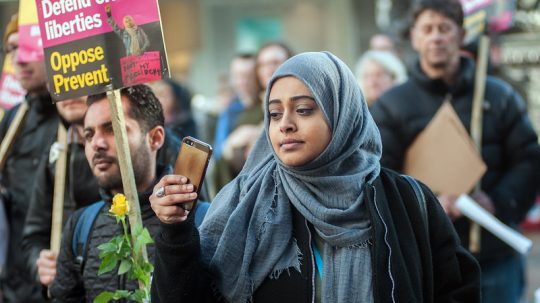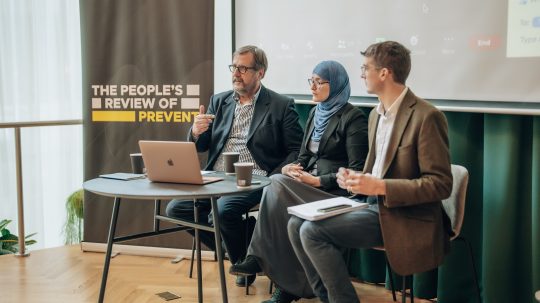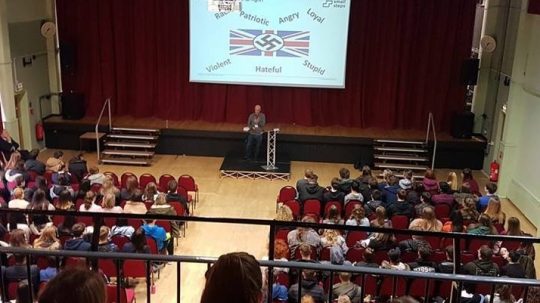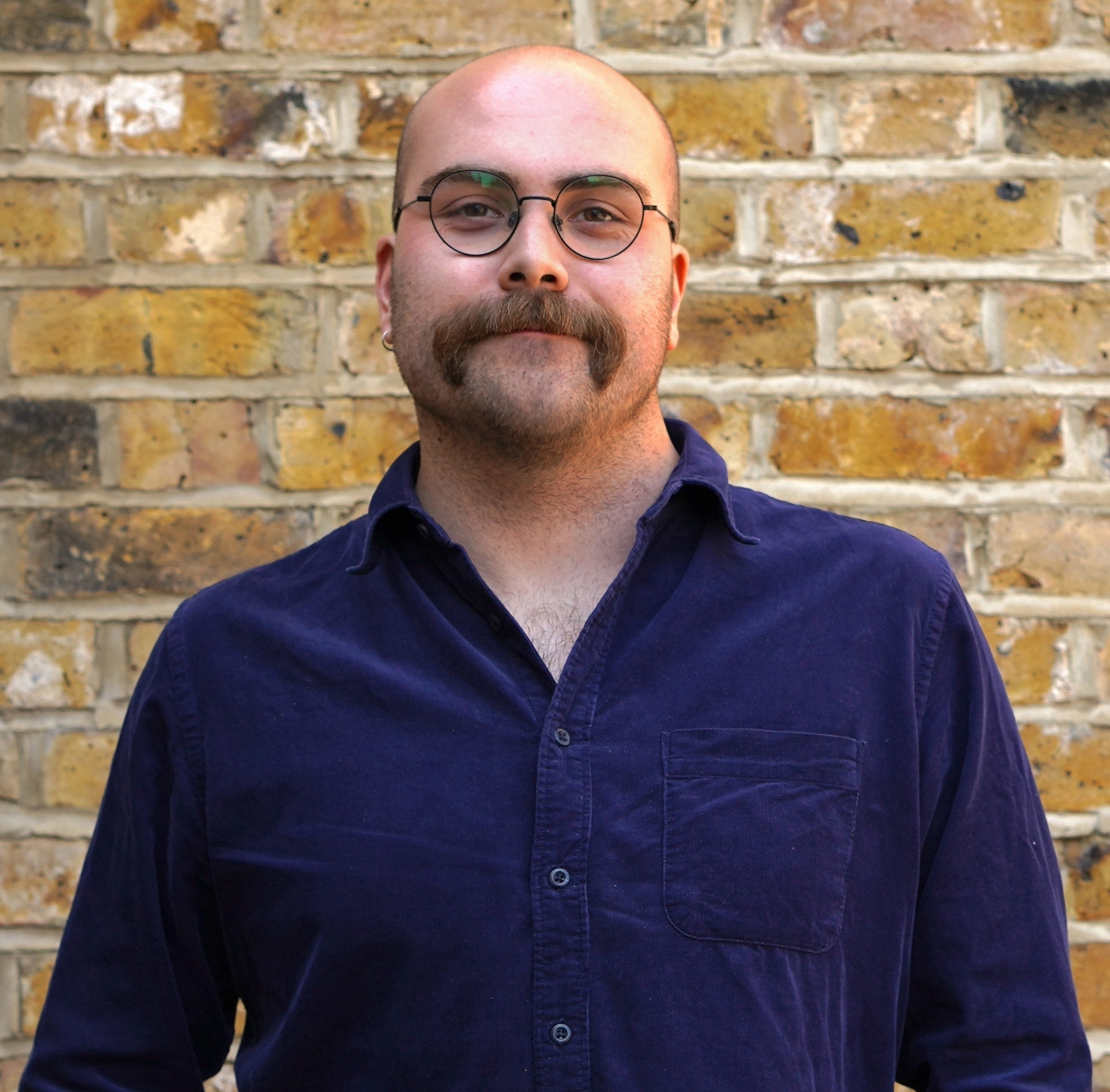EachOther’s Sarah Wishart (Creative Director) and Jack Satchell (Film Producer) provide a glimpse behind the scenes of EachOther’s new film about the government’s Prevent strategy.
Sarah Wishart, Creative Director
Often the work we do as a small charity takes time. This might be because we’re working with other small charities and all our joint resources are stretched, or because we’re having to secure funding in order to pursue a project. Sometimes, we can’t find the people to talk to us, or the people that would love to talk to us are in the middle of other projects. There can be all sorts of different reasons why things might not happen exactly when we first consider an idea.
The Prevent video we launched this week was first conceived back in 2019. We were working back then on a film about the issues surrounding the government’s ‘hostile environment’ immigration policy. We spoke to many people, especially families directly impacted by the hostile environment, and, in the process of interviewing a range of frontline workers, I interviewed senior lecturer from the University of Greenwich, Rania Hafez. She talked with great passion about the impact and implications of the hostile environment. She also talked at length about the issues she’d seen in schools and universities as a result of the Prevent programme, which forms part of the government’s counter-terrorism strategy.
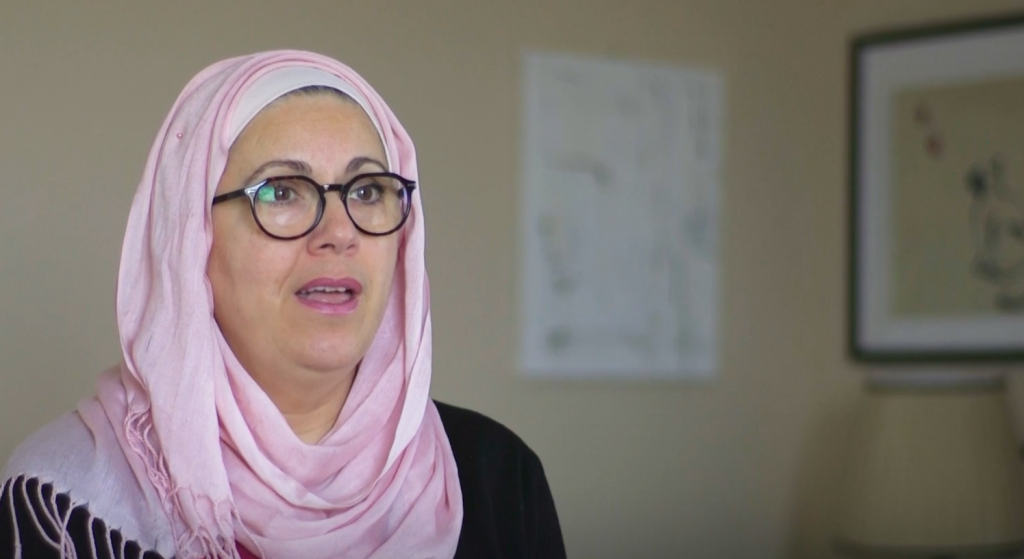
(You can explore all that content through the Spotlight on The Hostile Environment that we made to mark the launch of that film.)
We started to talk about making a Prevent film towards the end of 2019, but what with our rebranding exercise in December 2019, and then the onset of the pandemic in early 2020, we had to switch our focuses to elsewhere. We were committed, though, to making a film about the Prevent strategy at some point.
When the official review of Prevent was announced in January 2021, we saw that this was the point in time when conversations around Prevent could be useful. We started working with some of the 17 charities who had formed a coalition to protest the appointment of that review’s chair, Sir William Shawcross, to hear their thoughts and positions.
In February 2021, we interviewed deputy chair of MEND, Dr Shazad Amin, as our Film Producer, Jack, explores below. We wanted to ensure too that we featured the voice of someone affected directly by Prevent. We were put in touch with a mum whose son had been referred to Prevent at the age of just 11. We worked with her to capture her family’s story, including talking with her about how she wanted her story to sound. In the summer of 2021, we worked with a voice actress who reflected her background and ethnicity to ensure the story had the kind of voice that the mum wanted to tell her son’s story.
Sometimes, even when we have the material for a film, it might not be the right time to launch it, so we wanted to wait until the publication of the report of the official Prevent review. Given that the report has now been leaked, we feel this is the time to start a series of conversations, from many different angles, as we hope you’ll see in this week of content.
Jack Satchell, Film Producer
Once we decided we were going to make a full film tackling the issues with Prevent and charities’ boycott of the government’s review of it, in order to add to Rania’s perspective we reached out to two organisations we knew had a lot to say about the matter.
We spoke to MEND (Muslim Engagement and Development), one of the 17 organisations who signed up to the boycott of the official Prevent review, and their deputy chair, Dr Shazad Amin, agreed to talk to us for the film. He provides a vital backbone to the film, describing the overall context of the Prevent strategy, and outlining why MEND, along with 16 other organisations, felt the need to boycott the government’s review of it, after Sir William Shawcross was appointed reviewer.
The final piece of the puzzle, and perhaps the most important part of the film, was to hear the story of someone with lived experience of being swept up by Prevent. For this, we spoke to Prevent Watch, whose director, Dr Layla Aitlhadj, kindly put us in touch with a mother whose son had been referred to Prevent at just 11 years old. He had made a flippant remark during a school fire drill. Their story is one that’s all too familiar for many across the UK, particularly British Muslims. In NHS settings, for example, Muslims are eight times more likely to be referred to Prevent than non-Muslims. As Dr Shazad Amin puts it in the film, “If the political will was there, the the actual research could be done to identify what are the risk factors that leads someone to committing a terrorist act… rather than simply having this scattergun approach, where you refer, essentially, anyone you’re a bit worried about.”
We hope the film will help shed some light, for those unaware, on the arguably discriminatory way the Prevent strategy is currently being implemented, and show why so many human rights organisations are concerned about the government’s review of it.



